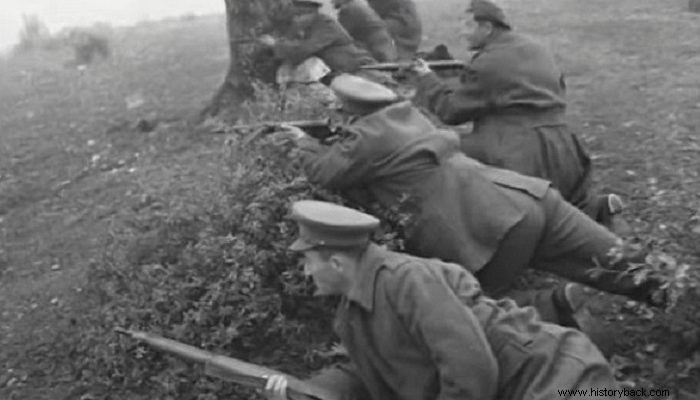
The Greek Civil War was one of the most important military conflicts that marked the beginning of the Cold War, after the two superpowers born from the ashes of the Second World War. At least that's what is being said today. However, the war did not begin in 1946. It began in 1943, in the midst of a triple occupation of the country, with specific objectives and with a completely clarified reasoning, from the side that started it. Gradually we reached the explosion of a real war, between two armies, the Greek Army and the so-called "Democratic Army of Greece". For three years, hundreds of battles and military and non-military operations took place.
From 1943, a peculiar civil war began in the Greek mountains between ELAS, on the one hand, and almost all other resistance organizations, which escalated dangerously in 1944 and resulted in the dissolution of organizations such as EKKA. These organizations were broken up in a bloody way and many of their members and leaders were murdered and then accused of being "traitors", "Germans", etc. Also, EDES, led by the anti-monarchist Zervas and political leader by the also democrat Plastiras, received a series of blows from ELAS and was limited to western Greece.
Similar events happened in the Peloponnese, but also in Macedonia. These attacks were not random, nor were they the result of a series of misunderstandings, nor were all the organizations not part of EAM naturally treacherous, as they were presented and some still present them to this day. It should be noted that also the leader of ELAS, General Sarafis, before his "compulsory" joining ELAS, was openly accused of being a "disloyal, traitor" , by the same people who a little later assigned him the leadership. Logic alone leads to conclusions. Some in EAM looked further, after the end of the Second World War and made their own calculations.
The December ones followed, but they did not start "spontaneously" due to the bloody suppression of the "people's demonstration" in Athens by the "monarcho-fascists". After the defeat of ELAS and the Varkiza Agreement, the situation remained tense, with the KKE now preparing for the so-called "third round". The opinion that the war preparations had as their sole objective the self-defense of the persecuted "democratic citizens" is only partially correct and certainly does not justify an open war against Greece.
Because yes, there were persecutions against the old ELASites, both officially, thanks to the clause of the Treaty of Varkiza, regarding the non-amnesty of the criminal offenses committed during the Decembrians, as well as unofficially by armed, largely anti-communist groups, mainly for reasons of revenge , but not to the extent of justifying the provocation of a civil war.
However, with the provocation of the war, the KKE began an adventure that had little or no hope of a happy ending. Stalin, throughout the war, never took a clear position in favor of the DSE. Having divided the world with the Westerners at Yalta he had no intention of getting involved in a problem already solved. In no case would he risk the explosion of a generalized war for Greece, against the USA which, let's not forget, was then the only country in the world that had nuclear weapons and had actually used them.
It is no coincidence that both the USSR at the time, as well as the satellite states, which helped the DSE in various ways, never recognized the government of "Free Greece". Stalin faced the Greek civil war with opportunism. If the DSE managed to prevail, it would have done well. If not, "no problem".
So in reality, in the great adventure, the DSE was alone, with only natural allies, the regimes of the neighboring countries, which, however, sought their own benefits - mainly territorial - with Tito's Yugoslavia as a pioneer and the so-called Macedonian one as the spearhead. Unfortunately, the then leadership of the KKE - Zachariadis - having no other practical choice, allowed himself to be dragged dangerously in Tito's chariot, until the moment when the latter distanced himself from the Soviet chariot. The "Macedonian" thorn, however, remained and continues to torment us to this day.
